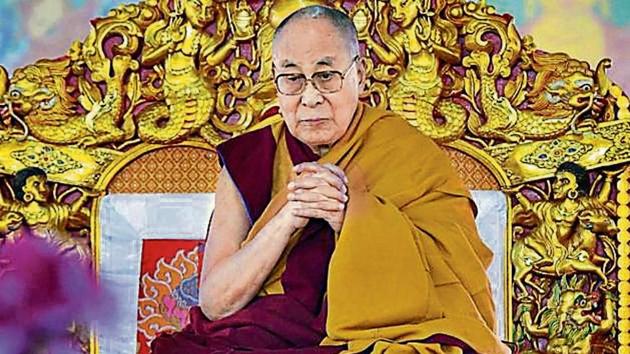China may reject Dalai Lama chosen abroad
The 14th Dalai Lama’s age – he turned 84 on July 6 – and his health problems in recent years have added importance to the issue of finding an eventual successor.
Chinese authorities are set to reject any successor to the current Dalai Lama chosen outside the country, with experts saying any Indian involvement in the matter would have the potential to affect bilateral relations.

The 14th Dalai Lama’s age – he turned 84 on July 6 – and his health problems in recent years have added importance to the issue of finding an eventual successor. According to age-old Buddhist traditions, the Dalai Lama’s successor is chosen through reincarnation, but Chinese authorities insist the individual must also be recognised by the government in Beijing.
“There are established historical institutions and formalities for the reincarnation of the Dalai Lama and the position of the Chinese government is clear cut and resolute,” Wang Neng Sheng, an official with the rank of vice minister, told a small group of Indian journalists invited for a rare tour of the Tibet Autonomous Region.
“[The Dalai Lama’s] reincarnation will not be decided by his personal wish or some group of people living in other countries,” said Wang, who is director general of the information office of Tibet, which is referred to as Xizang by Chinese authorities.
Wang contended the Chinese government and past dynasties played a “leading role” in granting recognition to the Dalai Lama or head of the Gelug school of Tibetan Buddhism, who, he said, was chosen through a draw of lots using a golden urn. “Otherwise, with no recognition by the central government, the Dalai Lama doesn’t have a legal status.”
At the Beijing-based China Tibetology Research Center, a state-run think tank that advises the government on framing policies for Tibet, experts Zha Luo and Xiao Jie underscored the importance of choosing the next Dalai Lama through a draw of lots and receiving recognition from Chinese administration. They contended an individual chosen without this process would be an “illegal” Dalai Lama.
Asked about the implications of India not accepting a Dalai Lama chosen through the Chinese process, Zha noted this was a hypothetical matter but made it clear that it has the potential to impact bilateral ties. “If the Chinese government recognised the legal [successor] of the Dalai Lama while the Indian government refused to recognise [him], it would be a major political difference that would affect Sino-Indian relations,” he said.
“Since the reincarnation of the Dalai Lama is an important issue for China, any friend of China wouldn’t interfere or meddle in this issue with China.”
The current Dalai Lama fled to India in 1959 and sought political asylum after escaping a military crackdown on an uprising by the population of Tibet. The Central Tibetan Administration (CTA), or government in exile, is based in Dharamshala in Himachal Pradesh.
As it has worked to improve ties with China in recent years, India has tread cautiously on the issue of the Dalai Lama. In 2017, the external affairs ministry even advised officials to stay away from events organised by CTA in view of Beijing’s sensitivities.
Though extensive efforts have been made to scrub all public manifestations of the influence wielded by the Dalai Lama in Tibet, Buddhism remains an intrinsic part of the lives of the local populace. Devout Buddhists visiting the Potala Palace, the Dalai Lama’s former residence that is now a museum, stuff currency notes and stop to pray before statues and stupas venerating the past reincarnations of the Dalai Lama.
Vice minister Wang, however, said religion “can’t interfere in politics, justice, administration and education” and that “religions in China must be independent from foreign influence”.
“He has been making rhetoric like this for years without taking any action. So his words are nothing new,” Wang said when he was asked about the Dalai Lama’s comments about seeking greater autonomy, and not independence, for Tibet.
The Dalai Lama, he said, had been “inciting and misguiding people out of his political motives”. He noted the Chinese government currently has no plans for further engagement with the Dalai Lama after 10 rounds of talks between representatives of the Tibetan leader and Chinese officials, the last of which was held in Beijing in 2011.
A member of CTA said the Chinese stand on the future Dalai Lama was a “ploy to politicise the issue of reincarnation and use it as a political tool to justify their occupation of Tibet and sinicise Tibet”.
“This will help to strengthen their rule and obliterate Tibetan identity, culture, language and way of life, which will be unfortunate,” he said.
Get Current Updates on India News, Lok Sabha Election 2024 live, Elections 2024, Election 2024 Date along with Latest News and Top Headlines from India and around the world.




